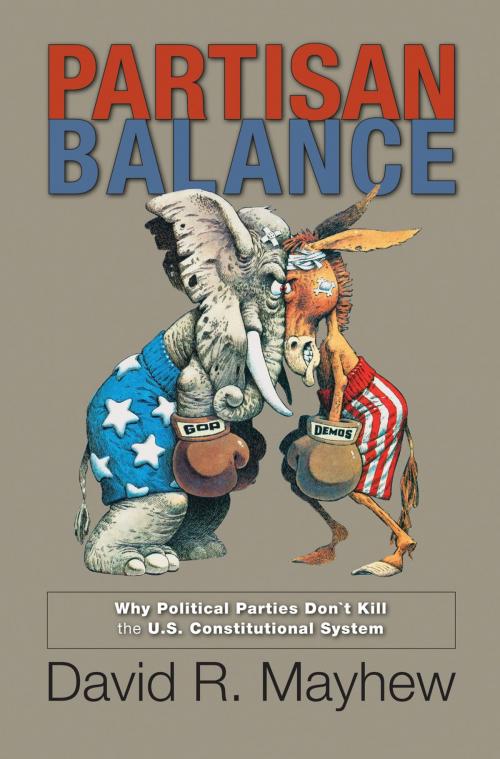Partisan Balance
Why Political Parties Don't Kill the U.S. Constitutional System
Nonfiction, Social & Cultural Studies, Political Science, Politics, Practical Politics, Government| Author: | David R. Mayhew | ISBN: | 9781400838417 |
| Publisher: | Princeton University Press | Publication: | January 17, 2011 |
| Imprint: | Princeton University Press | Language: | English |
| Author: | David R. Mayhew |
| ISBN: | 9781400838417 |
| Publisher: | Princeton University Press |
| Publication: | January 17, 2011 |
| Imprint: | Princeton University Press |
| Language: | English |
With three independent branches, a legislature divided into two houses, and many diverse constituencies, it is remarkable that the federal government does not collapse in permanent deadlock. Yet, this system of government has functioned for well over two centuries, even through such heated partisan conflicts as the national health-care showdown and Supreme Court nominations. In Partisan Balance, noted political scholar David Mayhew examines the unique electoral foundations of the presidency, Senate, and House of Representatives in order to provide a fresh understanding for the government's success and longstanding vitality.
Focusing on the period after World War II, and the fate of legislative proposals offered by presidents from Harry Truman to George W. Bush, Mayhew reveals that the presidency, Senate, and House rest on surprisingly similar electoral bases, with little difference in their partisan textures as indexed by the presidential popular vote cast in the various constituencies. Both congressional chambers have tilted a bit Republican, and while White House legislative initiatives have fared accordingly, Mayhew shows that presidents have done relatively well in getting their major proposals enacted. Over the long haul, the Senate has not proven much more of a stumbling block than the House. Arguing that the system has developed a self-correcting impulse that leads each branch to pull back when it deviates too much from other branches, Mayhew contends that majoritarianism largely characterizes the American system. The wishes of the majority tend to nudge institutions back toward the median voter, as in the instances of legislative districting, House procedural reforms, and term limits for presidents and legislators.
With three independent branches, a legislature divided into two houses, and many diverse constituencies, it is remarkable that the federal government does not collapse in permanent deadlock. Yet, this system of government has functioned for well over two centuries, even through such heated partisan conflicts as the national health-care showdown and Supreme Court nominations. In Partisan Balance, noted political scholar David Mayhew examines the unique electoral foundations of the presidency, Senate, and House of Representatives in order to provide a fresh understanding for the government's success and longstanding vitality.
Focusing on the period after World War II, and the fate of legislative proposals offered by presidents from Harry Truman to George W. Bush, Mayhew reveals that the presidency, Senate, and House rest on surprisingly similar electoral bases, with little difference in their partisan textures as indexed by the presidential popular vote cast in the various constituencies. Both congressional chambers have tilted a bit Republican, and while White House legislative initiatives have fared accordingly, Mayhew shows that presidents have done relatively well in getting their major proposals enacted. Over the long haul, the Senate has not proven much more of a stumbling block than the House. Arguing that the system has developed a self-correcting impulse that leads each branch to pull back when it deviates too much from other branches, Mayhew contends that majoritarianism largely characterizes the American system. The wishes of the majority tend to nudge institutions back toward the median voter, as in the instances of legislative districting, House procedural reforms, and term limits for presidents and legislators.















